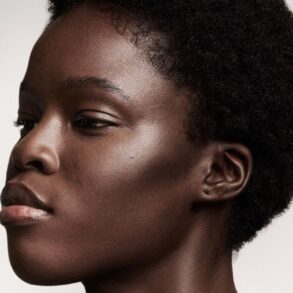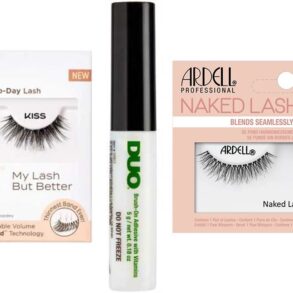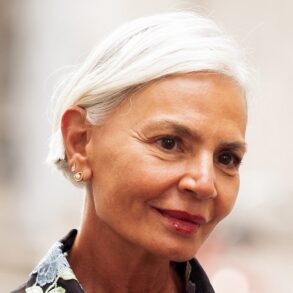Mel 4Ever and Chelsea Manning are both doing fine, relatively speaking. Chelsea has just returned home from playing a DJ set at Atlanta’s Pride festival, a skill she’s been leaning into more lately — though she’s been spinning records for the past 15 years. Before that she was wrapping up a tour for her book, README.txt: A Memoir and now she’s finally “recovering from the last few years.”
“This was the first year that wasn’t in crisis, or scrambling to survive or it’s been the pandemic or I just got out of jail or going back to jail or economic recession,” Chelsea tells Mel at the start of their conversation. “This year is about finding my footing, that’s been the focus,” she adds. “Same, but for different, less grave reasons,” Mel agrees with a charming laugh.
Last month, Mel released her bold, abrasive and immensely euphoric sophomore EP, She Culture.1, then she immediately moved from New York City’s gritty Bushwick neighborhood to sunny Los Angeles. The album, which she has described as her “Britney Spears lashing out at the paparazzi moment,” also conveys a shift in her overall position in the world, albeit creatively.
In it, Mel refuses to mince words or leave any disorienting beats behind, opening the EP with the track “J.K. Rowling”, which borrows its name from the Harry Potter author who has been outspoken about her beliefs that trans women are not women. The brisk track is a little less than one minute of pulsating and stuttering rhythms, as Mel recalls a harrowing memory from fifth grade when a classmate threw money at her face, saying it was for a sex change. For Mel, it’s revisiting a time when her innocence was taken away then violently thrown back into her face. However by the time the next track “She Culture” begins, Mel has taken her power back. “It’s like OK, I’m a monster now but I’m also going to defend myself,” she says. “That’s what ‘She Culture’ felt like to me. It was just constant defense of myself and my former inner child.”
Chelsea finds the title track “particularly relatable” since it hits on the “constant fight or flight” feeling that comes with living with an “identity that may not be accepted by the world.” Since most people were introduced to Chelsea as the whistleblower behind the largest leak of classified records in U.S. history, the idea of her mixing tracks by Charli XCX and SOPHIE for lively crowds may seem like a leap at first.
Still, during her PAPER video chat with Mel 4Ever, Chelsea Manning shows off the depth of her pop prowess, humbly calling out her favorite songs by the subversive artist while digging into the popular culture consciousness that sees them both successfully creating despite the anti-trans rhetoric pervading current legislation and media.

Mask, top and skirt: Busted Brand, Collar: Zana Bayne, Coat: Meli
Chelsea Manning: How are you? What have you been up to through the entirety of this year that went by very fast?
Mel 4Ever: I’ve been touring, which has been weirdly traumatic. Being on the road and having no money is just a scary thing to do.
Chelsea: Also extremely common.
Mel: Right? I definitely feel this We’re all in this together vibe, but I’m also like, What if I’m in an emergency? Also, I just moved to LA like 10 days ago. I was living in Bushwick for eight years. Living in Bushwick, there’s so much stimuli, and walking down the street getting spit on and screamed at is very common. So while on tour, I’m walking down the street in fight-or-flight with everyone that comes past me. I’m flinching if I hear a car horn because I’m like, Oh, they’re coming after me. I’ve had to deal with those feelings, as well. But the big thing about this year is I released an EP, then the next week I moved to LA. Part of my reasoning for the move is that I want to be closer to music and my collaborators are here, but also I’m really excited to thaw out of the New York energy.

Dress: Busted Brand, Rings: Rare Romance: Bracelet: Noritamy
Are there songs in the She Culture. 1 EP that were inspired by your experience in Bushwick?
Mel: Tracks one through seven [laughs]. But to be specific the first two tracks [“JK Rowling,” “She Culture”] and “Girl Forever.” “She Culture” was about being in constant defense for myself and my former inner child. It felt like I had to protect these girls because I had so much coming at me. You open your phone to Instagram and it can be so crazy sometimes. I want to go back to the times when people were just throwing a sepia filter on a landscape and being like, “pretty.” Now it’s “Another right stripped from a trans kid.” I was in defense mode and I needed to make my body into armor, which is kind of how I feel transitioning anyway. Although the armor is soft and plush, it’s armor nonetheless. “Girl Forever” is about an assault. I was just like, Why can’t I just walk down this road? I’m going to the grocery store, girl, you don’t want this right now.

Dress: Busted Brand, Necklace: KWK, Rings: Rare Romance
Chelsea: I watched your music video for [“She Culture”], and I felt like it captures some of that feeling in the color and how your makeup is done — the whole sense of becoming an identity and figuring out who you are, but also trying to deal with that identity not being accepted by the world. That fight-or-flight that’s just a constant simmering inside of you. I definitely feel like that track in particular resonated with me, even though my own experience is is quite different.
Mel: Yeah. It did feel like there was a bunch of stuff coming at me and a lot of non-acceptance simultaneously. I’m trying to figure out who I am. I think that’s perfectly said. It’s hard as a Libra to balance those things out, and figure out who you are and what you stand for and how you want your future to look. There’s a lot to juggle. I think sonically that’s definitely in there, because there’s a pretty little synth melody, but then I’m whispering threats.

Dress: Alabama Blonde, Gloves: Busted Brand, Earrings: Frou York
Chelsea: I’m curious, because you mentioned social media and its impact on you as an artist and as a person. How do you feel about the fact that our identities and our values have been put into this gamified infrastructure? We extract value and we’re creating symbols, and it’s just people swiping on a phone or just tapping a pretty emoticon that glows whenever you tap it. How does that impact you as an artist?
Mel: I find it damaging and very stressful, honestly. But at the same time, a large part of my art is about connection. I’m just trying to laser through the noise to connect to people. It’s an awful Stockholm syndrome situation where I’m getting beat up by this [fictional] dad, but also that same dad is rewarding me. I use it because a young person will message me, like an 18-year-old will say, “This song really helped me or this saved my life.” There’s a really direct and profound impact that happens on the app. But like you said, it’s also gamified.

Mask, top and skirt: Busted Brand, Collar: Zana Bayne, Coat: Meli
Chelsea: This is one of the reasons why I don’t engage with social media artistically, for instance. I’m hesitant because it feels like as a content creator you’re basically playing a lottery or you’re playing in a casino, because you don’t know what’s going to hit. You don’t know what the algorithm’s going to like or what’s going to go viral; it just seems completely random.
Mel: Literally. The way I counter that experience online is live shows, that second you’re in front of an audience. All of a sudden, none of that matters anymore, because we’re here, we’re live and we’re at some kind of religious experience together. Being in the crowd and seeing a performer on stage or seeing a DJ in front of the soundboard, it is so like a podium. It feels like church to me. I grew up Greek Orthodox in Alabama which was quite intense, so that’s where my brain goes. Online I’m just like, Here’s a photo, then in person I’m like, I’m about to show the reason why I’m here. I go absolutely ham. I spit up blood on people and get completely naked. That’s when I’m really capturing your attention.
Chelsea: It’s being truly feral.
Mel: Yeah. It’s like, I need this to resonate with you, I need your attention for more than 0.8 seconds. That’s why magic really ends up happening at live shows and those moments are always the most rewarding.

Dress: Busted Brand, Rings: Rare Romance: Bracelet: Noritamy
Chelsea: One of the reasons I like DJing is because unlike any other format you have instant gratification because there’s no intermediary. When you’re doing a live performance or a show you have a real true connection. You don’t get that same connection from a social media interaction or through Spotify or whatever. You as a performer are generating this art [live] and it can be flawed, too, and the flaws make it beautiful and powerful. I was just talking to an artist about screwing up. I’d completely screwed something up and nobody remembered that because the crowd went wild in that moment.
Mel: The game is set up online to penalize flaws. It’s crazy. I love being a mess because it feels like I’m trying to exorcise something, I’m trying to get this out of my pelvic floor. Like, whatever trauma is deep inside of me. So when I eat shit, which happens often because I’m always in eight-inch platforms…
Chelsea: If it makes you feel better Arca, at one of her shows I was just at a few nights ago, fell. Nobody’s immune, nobody.

Dress: Busted Brand, Necklace: KWK, Rings: Rare Romance
Mel: An actual demigod fell? That does make me feel better.
Chelsea: I want to go back to these interactions you have with younger trans people who find that your art resonates with them. I was once that, but I never had anyone [to look up to]. I was very early into internet culture as a teenager, like in the Napster generation with forums and IRC chats, ancient technology at this point. I was one of the first people in this online culture world and one thing that strikes me, as an empathetic point for people who engage with toxicity or are addicted to it, is the way we seek meaning and connection in our daily lives. I find it depressing that we built this online society to monetize the fact that we seek online connections. Because what we learn online is that even negative feedback is better than nothing, it still gives you a dopamine hit. How does that shape how you see yourself and the work you do?

Dress: Alabama Blonde, Gloves: Busted Brand, Earrings: Frou York
Mel: When I was first starting out in music, I didn’t give a shit. I was going to do whatever I wanted to do. Then all of the sudden I felt like I was taking on too much because when I’d get a positive reaction I felt like, Oh I have a responsibility. I want these kids to feel okay or for my peers to be seen. I didn’t know I had a voice until other people started telling me I did — all of sudden you’re making an impact.
Chelsea: And the internet enables that in a way that in a way you couldn’t before.
Mel: Right. When I’m writing lyrics or even thinking of a synth I’m going to use for two bars I hope it comes through, and I hope people feel heard and that I’m representing them well. But then at the end of the day, I have to stay true to exactly what I was meaning to say originally. But yeah, I always wanted to find someone online in another place that was like me, you know what I mean? Isn’t that why we were all online in the first place?

Mask, top and skirt: Busted Brand, Collar: Zana Bayne, Coat: Meli
Stream She Culture.1 by Mel 4Ever, below.
From Your Site Articles
Related Articles Around the Web
This post was originally published on this site be sure to check out more of their content.





